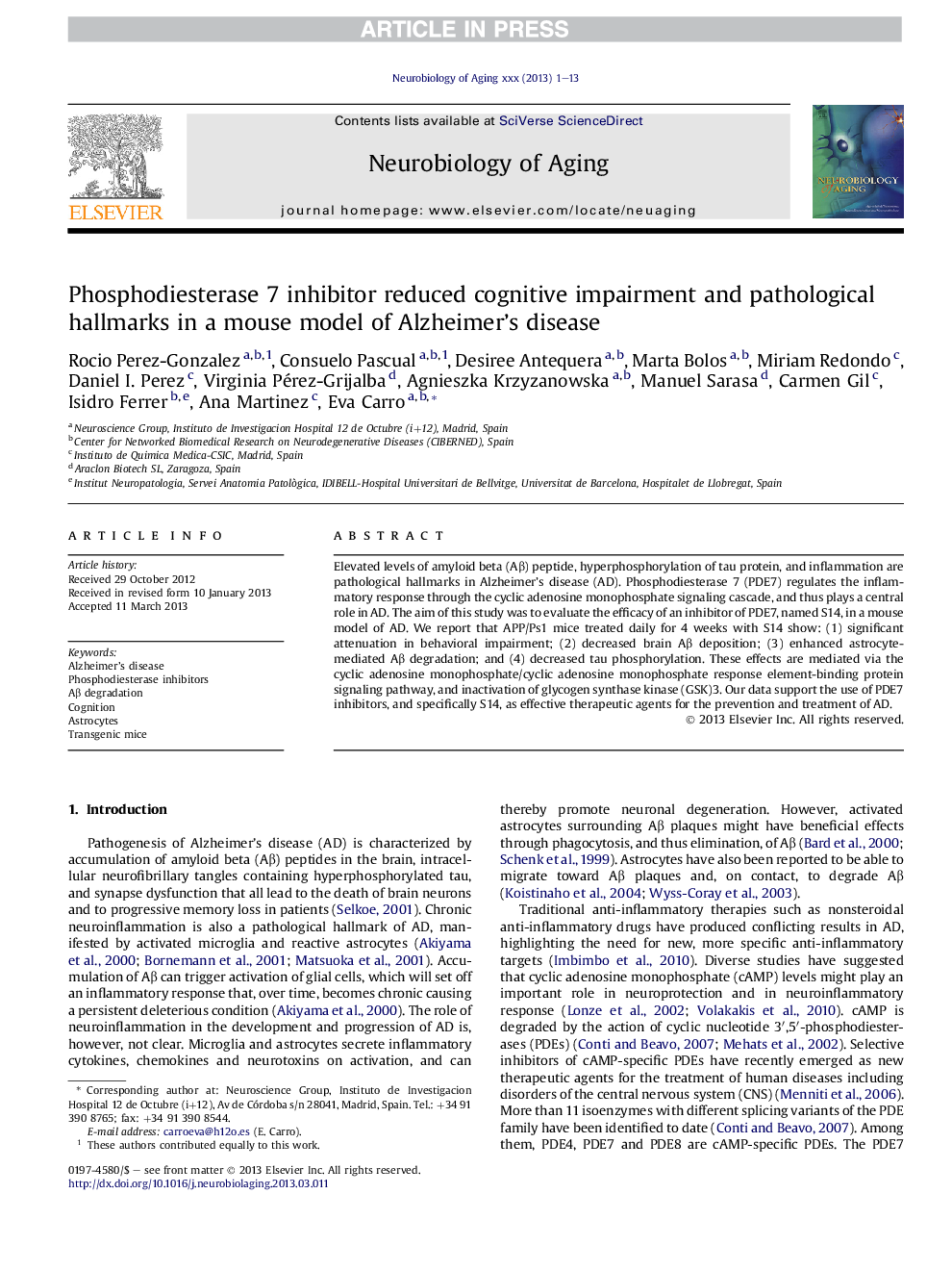| Article ID | Journal | Published Year | Pages | File Type |
|---|---|---|---|---|
| 6807089 | Neurobiology of Aging | 2013 | 13 Pages |
Abstract
Elevated levels of amyloid beta (Aβ) peptide, hyperphosphorylation of tau protein, and inflammation are pathological hallmarks in Alzheimer's disease (AD). Phosphodiesterase 7 (PDE7) regulates the inflammatory response through the cyclic adenosine monophosphate signaling cascade, and thus plays a central role in AD. The aim of this study was to evaluate the efficacy of an inhibitor of PDE7, named S14, in a mouse model of AD. We report that APP/Ps1 mice treated daily for 4 weeks with S14 show: (1) significant attenuation in behavioral impairment; (2) decreased brain Aβ deposition; (3) enhanced astrocyte-mediated Aβ degradation; and (4) decreased tau phosphorylation. These effects are mediated via the cyclic adenosine monophosphate/cyclic adenosine monophosphate response element-binding protein signaling pathway, and inactivation of glycogen synthase kinase (GSK)3. Our data support the use of PDE7 inhibitors, and specifically S14, as effective therapeutic agents for the prevention and treatment of AD.
Related Topics
Life Sciences
Biochemistry, Genetics and Molecular Biology
Ageing
Authors
Rocio Perez-Gonzalez, Consuelo Pascual, Desiree Antequera, Marta Bolos, Miriam Redondo, Daniel I. Perez, Virginia Pérez-Grijalba, Agnieszka Krzyzanowska, Manuel Sarasa, Carmen Gil, Isidro Ferrer, Ana Martinez, Eva Carro,
